Using Agile Principles For Implementing Customisable Workflow & Collaboration Software In The Life Science Research Laboratory
The work performed in life science industry research laboratories plays a crucial role in how quickly you will see a return on investments in new drugs and treatments. The speedier the turnaround you can achieve in the labs, the longer the product can be in the market before the exclusivity from the patents expires. In this context, each day can be worth millions of dollars.
To improve productivity and transparency across projects, laboratories have turned to software systems such as ELN (Electronic Laboratory Notebook) and LIMS (Laboratory Information Management Systems). However, LIMS systems were first and foremost developed for laboratories performing volumes of repetitive tests, which is not what you would find in a life science research lab. ELNs, in contrast, are very flexible, which makes the data mostly unstructured, rendering it hard to analyse effectively.
The lab work associated with a life science research project requires its own specific workflow and data management setup. It means that the software must be customised for each project. Therefore, the IT needs of such laboratories are not well served by the traditional ELN and LIMS offerings designed to be customised for permanent workflows and data configurations. This explains why many research laboratories in the life science industry today operate with a combination of Excel, e-mails and maybe some homegrown software.
SCIFEON – A SOLUTION SPECIFICALLY DEVELOPED FOR THE LIFE SCIENCE RESEARCH LABORATORY
I experienced the situation described above firsthand when I worked at Novo Nordisk, leading a research informatics innovation group. In this capacity, I headed the development of a dedicated life science research laboratory IT-system and defined the principles on which Scifeon was later founded.
As the need for workflow and data management support in life science research laboratories varies from project to project, changing and implementing new instances of the software and related IT resources must be possible, easy to manage and maintain.
Our approach to this challenge (providing a standard ELN and LIMS that is easy to customise for each project) has three components.
The first component is the Scifeon software itself which comes as a service offered through a public or private cloud. This means that the IT platform is instantly available, scales in infinity, and is designed for customisation. As Scifeon is intended to be customisable, it comes with an SDK (software development kit), enabling the laboratory to make the changes required for their general environment as well as for the individual project.
The second component is the single-tenant format, which allows for complete customisation while we, Scifeon, still assume responsibility for improvements, updates, performance, and availability of the software as a service platform.
When activating Scifeon, the customer gets a cloud-based development instance and a production instance. It allows them to set up and test new workflows and database configurations before implementing them in the production environment.
Customisation can be done at many levels, from web-based system configuration to complex components. You can add your own tables, columns, and views. The features are also integrated with a DevOps setup, enabling you to automatically test and deploy updates and new functionality quickly and safely.
When a new version of the software gets released, it is tested on the development system first. If any issues are identified, they get fixed before being implemented on the production system. This architecture enables the customers to verify their customisations before taking them live.
While some of our staff were still struggling with our previous solution after using it for over a year, they are finding Scifeon immediately useful and easy to understand.”
Dr. Hans Genee – Chief Science Officer, Biosyntia
The third component is the agile implementation process, which enables a lab to have their projects in production on Scifeon in less than six weeks.
VIRTUAL AND AGILE PROJECT IMPLEMENTATION
It is our objective that the customer can make project-specific changes to Scifeon with their own resources. However, the first projects always require our involvement. We have designed a virtual and agile implementation approach that lets the customer go live within three to six weeks.
We introduced the virtual working format before the Covid-19 pandemic forced everyone else to adopt it. The virtual format allows us to work with laboratories worldwide and removes the time-consuming bottlenecks of having to bring people physically together. Eliminating the need for face-to-face meetings can cut several weeks out of an implementation project, while avoiding travel time also has a substantial cost advantage.
The agile implementation approach breaks down the project into modules, that are then tested and activated, allowing the users to start working on their project as soon as possible.
The discovery meeting
Preparing a project instance in Scifeon always starts with a discovery meeting where we discuss the project objectives. The client then sends us an example of the data that will be generated.
A solution outline
Based on the objectives and the data, Scifeon outlines a solution that is discussed with the project stakeholders.
The digitalisation plan
The final plan for the project is presented, amended, and approved.
Implementation
The implementation is performed with the super users and breaks the project into small steps that can be completed and taken into production within three to six weeks. Weekly or biweekly meetings are held to ensure knowledge transfer and project progress.
SAVING TIME AND MONEY AND GETTING HAPPY USERS
By using an agile approach, we accelerate the implementation of the complete system and, at the same time, obtain more satisfied users.
The knowledge gap is a generic challenge associated with implementing new customisable software solutions. Although the customers’ users have attended demonstrations, they are not intimately familiar with the system. Defining precisely what needs to be changed is complicated. Although we work exclusively with life science research labs and thoroughly understand the jobs to be done, each lab and each project is different.
“We were impressed by Scifeon because their system was more flexible to incorporate our specific R&D needs.”
Customer, Ph.D. – Research Scientist, Genetic Engineering Company
The agile, step-by-step approach obsoletes the need for making a voluminous requirement specification at a stage where both parties have only a little experience with the details of each other’s domains and expectations. Instead, we take small steps, learn, correct, adjust, and productise. Users can apply the modules in their live projects and suggest changes and improvements without incurring substantial cost.
The agile approach has proven to be the fastest route to complete a customised implementation project.
“Scifeon has been a life-saviour in a big project where we needed a tailor-made data management system. Even though we have only engaged them on very short notice, not leaving much time for development, Scifeon delivered on time, meeting all our needs and exceeding expectations. We are delighted to have chosen Scifeon for the development of our data management platform, and I will definitely choose them again for my next project”.
Bent Petersen, Associate Professor, PhD. GLOBE Institute – University of Copenhagen
ABOUT THE AUTHOR
Thomas P. Boesen, the CEO and founder of Scifeon, has developed software for more than twenty years. After completing his PhD. in protein chemistry in 2002, he worked as an IT consultant helping fellow scientists develop databases and other software tools for life science and biotech research laboratories. These gigs included workflow, business intelligence and data warehouse projects based on LIMS and ELN systems, laboratory logistics simulators and laboratory scheduling software. In 2016 he founded Scifeon, which develops and implements Customisable Workflow & Collaboration Software for the Life Science Research Laboratory (Research LIMS and ELN) Industry.

FOR MORE INFORMATION, PLEASE VISIT WWW.SCIFEON.COM
or contact Thomas Boesen at +45 5124 9454 or boesen@scifeon.com
